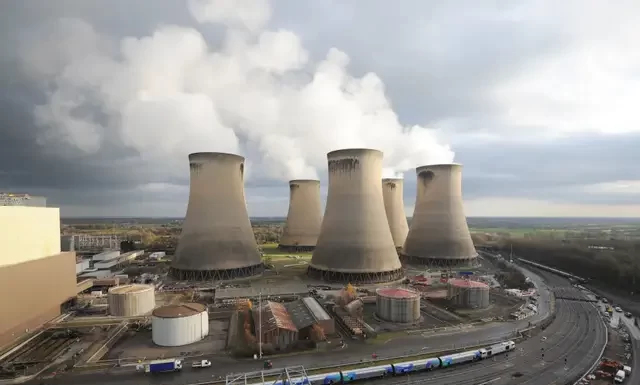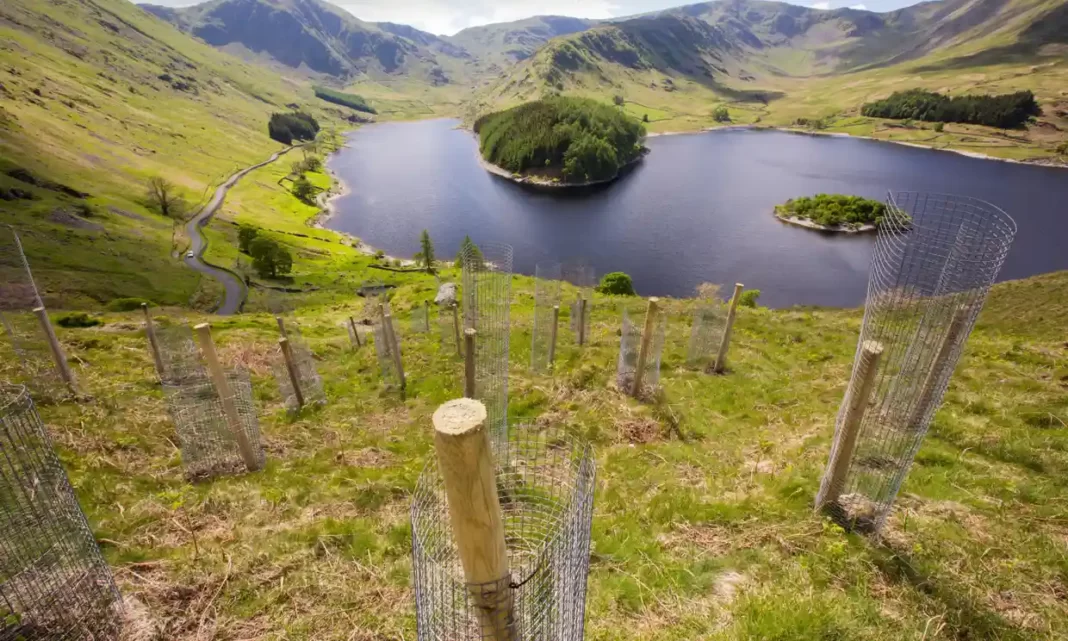The UK is struggling to meet tree-planting targets following a new report showing that less than half of the committed trees have been planted in England.
The Department for Environment, Food and Rural Affairs (Defra) published “ambitious” nature targets, a requirement under the Environment Act, including the goal of planting 30,000 hectares of woodland by March 2025.
A report by the environmental audit committee (EAC) of cross-party MPs has found that this target was unlikely to be met.
The Guardian reports that inaction on trees risks the UK’s net zero targets.
While the public sector is responsible for a quarter of all UK forest area, the Report found there was not enough direction from the government for the private sector, which faces “unclear strategies and overly bureaucratic schemes.”
The Report highlights a failed generation of policymaking.
Tree planting is crucial for meeting carbon and biodiversity targets and sustainability in the building industry.
According to the CEO of Confor, Stuart Goodall, the report “highlights how a failed generation of policymaking has led to a decline in wood production in England.”
As a result, it will jeopardise the nation’s ability to achieve net zero by 2050 and “mitigate a growing timber crisis,” Mr Goodall said.
“This needs to be a watershed moment that puts timber production at the heart of policymaking in England, where it belongs.”
Confor is the peak body for UK’s sustainable forestry and wood-based businesses and calls for greater investment in tree-planting and wood production.
“Importantly, it stresses what Confor has said for years: a sharp increase in timber production can be achieved at the same time as addressing the climate emergency and nature crisis.”
“Economic and environmental benefits can be delivered in tandem, he said, “The very title of the report recognises this.”

The UK needs to transition to a timber-based construction economy.
As reported in Guernsey Press, the committee said no single strategy articulates the Government’s vision for the timber sector.
Nor is there a clear plan to integrate that with delivery on nature restoration and climate change mitigation.
Chair of the committee, Philip Dunne, said: “As we look to meet our net zero and nature goals, pressures on woodland will grow.
“The construction industry is increasingly looking to move from steel and concrete to lower carbon alternatives, and timber is well placed to step in.
“Increasing productive forestry is welcome, though the Government must ensure that this isn’t at the expense of biodiversity.
It also noted that biobased renewables, like biomass, must be sustainably sourced.

More trees to support the demand for low-carbon materials.
The EAC report says UK-sourced timber will help meet the growing demand for low-carbon construction materials.
It adds that a significant expansion of woodland cover is required to compensate for predicted shortfalls in domestically produced softwood timber supply and to deliver the UK’s climate and environment goals.
The Report recommends that the government focus on tree planting for its upcoming and delayed land use framework, which is supposed to be a blueprint for how land is allocated in the UK.
The Defra minister Mark Spencer recently hinted that it would be watered down, saying it would not be a “communist” document telling landowners what to do with their estates.

The Report says the wrong species being planted could also be a disaster for nature, recommending that native broadleaves offer ideal habitats for wildlife. At the same time, conifers supply softwood for timber use.
According to Mr Goodall, a stronger focus on productive forestry is needed to grow timber more timber to meet future demand.
“This is the call for a properly integrated and long-term vision for forestry that we have been asking for, for decades,” he said.
“Getting planting done, and insisting that the private sector is encouraged to plant all types of woodland, with a strong focus on productive forestry to grow timber.”
Forestry England is underresourced to meet commitments.
The committee found this balance was unlikely to be struck, as the UK Forestry Standard is not routinely monitored, and Forestry England needs more resources to do this.
The committee said it was “disappointed to observe that Forestry England is not currently on track to contribute fully to national tree-planting targets: to date, it has only planted 303 hectares against its target of 2,000 hectares between 2021-2026.
A Defra spokesperson said: “Since the start of this parliament, we have planted or supported the planting of over 10.8m trees.”
“Increasing tree cover is at the heart of our pledge to meet net-zero ambitions, which is why we are investing £650m during this parliament in transforming England’s treescapes.”
“We are also continuing to work on delivering our legal target to have 16.5% of England’s total land area covered by trees by 2050.”
“Tree-planting rates are now at record levels, but we know there is much more to do and will continue to work with partners in both the private and public sector at pace to increase the nation’s tree cover and boost the forestry sector – supporting domestic timber production, creating new jobs and improving biodiversity across the country.”






